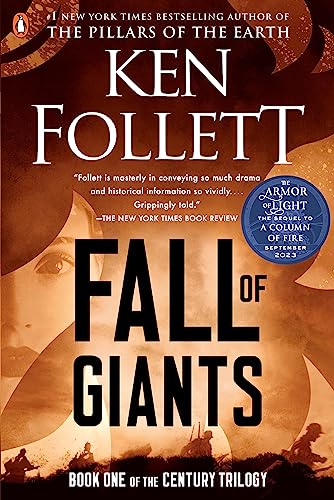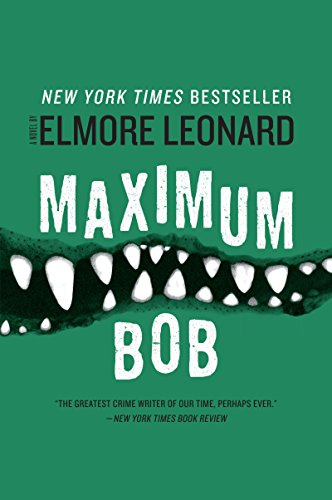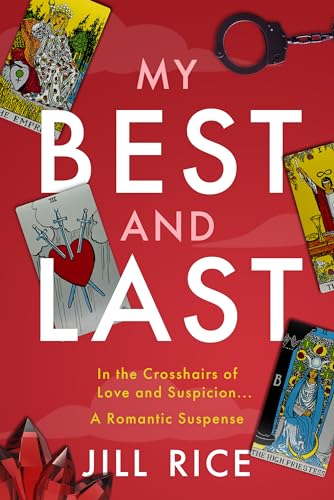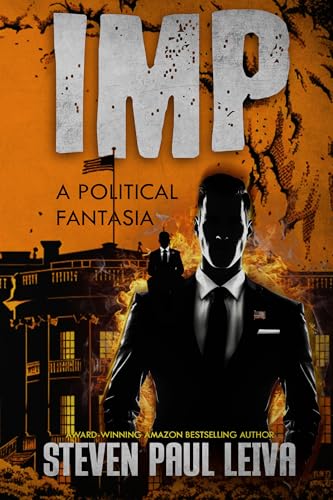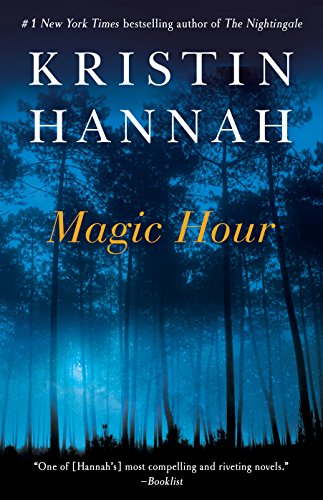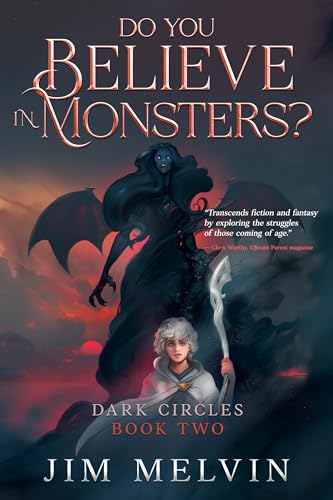On Friday we announced that Robert Storey’s 2040: Revelations: (Book One of Ancient Origins) is our Thriller of the Week and the sponsor of thousands of great bargains in the thriller, mystery, and suspense categories: over 200 free titles, over 600 quality 99-centers, and thousands more that you can read for free through the Kindle Lending Library if you have Amazon Prime!
Now we’re back to offer our weekly free Thriller excerpt:
2040: Revelations: (Book One of Ancient Origins)
by Robert Storey
“An ancient secret. A cataclysmic act of God. Humanity’s last stand.”
In the year 2040 Sarah Morgan, an English archaeologist, has long been seeking evidence to back up her claims that an advanced ancient human ancestor once populated the Earth. When she finally gets the proof she craves it is cruelly wrenched from her grasp; but never one to lie down Sarah finds another path, a path that propels her into a quest that will span continents and change her life forever.
Simultaneously the world prepares for the arrival of 2011 AG5, an asteroid that will impact off the South African coastline with the force akin to the strike that wiped out the dinosaurs 65 million years previous. Humanity has long been planning for this colossal event and many preparations have been made to counteract its after effects in order to preserve the ever fragile global economy and civilisation itself. As the world holds its collective breath, below the surface government-run clandestine subterranean facilities are gearing up for the challenges ahead. These facilities are run by the gifted and ever mercurial Professor Steiner who has overseen a global programme charged with the preservation of mankind, as the clock ticks down towards zero hour his schedule is on track; however everything might not turn out as smoothly as he’d hoped…
And here, for your reading pleasure, is our free excerpt:
2040: REVELATIONS
(Book One of Ancient Origins)
by Robert Storey
Copyright © 2014 by Robert Storey and published here with his permission.
Adversity is a fact of life.
It can’t be controlled.
What we can control is how we react to it.
– Unknown
FACT:
On the 8th January 2011 an asteroid with the potential to impact Earth in 2040 was discovered by the Mount Lemmon Survey. This near-Earth object was given the designation 2011 AG5.
The majority of locations and organisations referenced in this book are real.
Many of the world’s most powerful governments build and operate large clandestine subterranean facilities.
Prologue
November 13th, 2017
Professor Steiner buzzed with suppressed excitement. This didn’t happen often as his job was mundane, to him anyway. As head of a highly classified government subterranean research project, his job was an important one. He managed thousands of staff, allocated budgets and ensured the facility ran smoothly year in and year out, regardless of the many difficulties that arose. People’s lives depended upon the decisions he made. Most other people would find the job extremely challenging, even stressful; he did not, however. Graduating top of his class from Harvard in engineering, physics and computer science, with PHDs in all three subjects, he had lectured all around the world including CIT, Stanford, Oxford, Cambridge and Tokyo. At the forefront of various research projects, he’d also authored numerous acclaimed scientific papers.
So why had this emotional transformation occurred? He’d been called to the White House on a matter of national security. The national security part was old hat to Steiner, of course; it was part of his daily work. The White House, on the other hand, certainly was not. Like many people he’d only seen inside it on TV and most of the time that was probably a mock up on a movie set or in a TV studio; this, however, was the real deal.
‘Professor Steiner.’
Snapping out of his reverie he looked up from his seat as a woman dressed in a smart suit approached him.
‘Would you like to come this way, please?’
Standing up he smoothed down his trousers, making himself presentable, and followed her through a door and into a large hallway. As they walked he took in the sumptuous surroundings of the residency of the most powerful man in the modern world.
Apparently the Oval Office was under renovation, otherwise he’d have asked for a quick peek inside. This hadn’t dampened his mood, though, and neither did the fact that he wasn’t meeting the President, who was off on important business at the 2017 G13 summit meeting in Shanghai. Just being in the White House was enough for him.
The woman opened a door and waved him through. ‘Take a seat, please; they will be with you shortly.’
Thanking her, he settled down again to wait. In front of him, on the wall opposite and immediately capturing his attention, a magnificent oil painting depicting the Greek god Hephaestus wielding stonemasons’ and blacksmiths’ tools against the Earth. Great fire and gasses spewed forth at the sites of impact whilst gaping rents in the planet’s crust branched out across its spherical mass, revealing the molten core beneath; the detail astounded him. He wondered how long it would take someone to paint such a masterpiece. Hundreds of hours, he presumed, preceded by a lifetime of mastering the discipline’s finer points. Steiner’s eyes soaked up the exquisite brush strokes, his thoughts becoming entranced by the scene’s dynamic power. Sometime later, as he continued to study the great work framed within its ornate border of plaster and gold leaf, a young man appeared in a doorway off to his right.
‘Professor, good to see you again. Sorry to keep you waiting. Come in, come in.’
Steiner couldn’t remember the man’s name. Not one of his strongest points, names and faces. Give him a mathematical proof to remember any day of the week. Entering the room, he saw that four people sat waiting informally on sofas and chairs, papers, files and laptops arranged haphazardly around them.
‘Madam Vice President,’ Steiner heard himself say.
The VP stood and shook his hand warmly. Her entourage included one of the Joint Chiefs, a couple of suits and the man who’d let him in.
‘Professor,’ the Vice President said, ‘thank you for coming on such short notice. I hope we haven’t inconvenienced you too much by interrupting your important work. This is General Redshaw; I think you may have met previously?’
Steiner nodded giving the general a small smile as he was reintroduced. The fact was he didn’t remember the man at all, but not wanting to appear incompetent he refrained from disclosing this fact.
‘My Chief of Staff, David Broad,’ the VP continued.
A sallow faced man moved forwards and shook Steiner’s hand firmly. ‘Professor, it’s nice to meet you at last.’
Steiner gave another nod of his head as he returned the handshake.
‘Malcolm Joiner, Principal Deputy Director of National Intelligence,’ said the VP, indicating a tall, wiry man with jet black hair, who remained sitting, merely lifting a couple of fingers from his knee in recognition. The VP then put one hand on the young man’s shoulder. ‘And of course, my personal aide, Nathan Bryant, who you already know.’
Ah, that was his name, Steiner recalled belatedly.
‘We have a lot to discuss, Professor,’ she told him, gesturing with a measured hand for him to take a seat, ‘so let’s get straight down to business.’
Steiner sat down at the end of one of the sofas and Nathan handed him a cup of tea. For many days Steiner had been wondering why he had been called to this meeting, the prestigious surroundings and company meant it must be important; just how important he was about to find out.
Malcolm Joiner cleared his throat. ‘Professor, in January, 2011 an observatory in Tucson, Arizona sighted an asteroid that had the potential to impact earth in 2040.’ He handed him a grainy printout of the object in question.
‘As you are probably aware, there are many potential objects in space that are likely to collide with the Earth at some point in the future. Unfortunately we have since verified that this rock, some four miles in length and half that in diameter, will almost certainly collide with us in 2040.
‘To give you an idea of the scale of this threat scientists originally estimated the infamous meteor that wiped out the dinosaurs was about nine miles across; however, new estimates have the dino killer at a mere three to four miles in length. If this new data is true—and we believe it is—then we can expect—’
Steiner cut in mid-sentence. ‘An initial impact devastation zone, earthquakes and possibly volcanic activity. Tsunamis and destruction of the ozone layer, if the impact is in an ocean or sea, followed by acid rain and intense localised fires. The resulting dust cloud kicked up on impact will encase the planet for a number of years, killing off crops and plant life globally, not to mention the impact on human and animal life.’ As Steiner finished his sentence it dawned on him the immense implications of what he’d just described.
‘Indeed,’ Joiner replied solemnly, ‘not a pretty picture. Yet, unlike in Hollywood movies, our top scientists tell us we do not currently have the capability to divert or destroy any asteroids that are heading our way. This won’t stop us from trying, of course, but since the whole of our species is threatened with extinction we prefer to have plans with as close to a one hundred per cent chance of survival as possible. Not just survival, but a means by which to continue our way of life.’
‘What about putting bases on the Moon or Mars?’ Steiner suggested instinctively.
Joiner’s mouth twitched, which may have been the man’s attempt at a smile. ‘Again, contrary to popular culture, we are even further away from attempting to populate other celestial bodies. So what do we do to counter these horrific after-effects? There are a few options open to us.’
Turning, Joiner pressed a remote button to bring up large slides on the huge flat screens behind him. He pointed to the first. ‘Option one, underground shelters. Perhaps the most effective solution available to us at present. Any such subterranean facilities will be able to preserve our way of life, our species and the many other forms of life on the planet which may—although unlikely in this instance—be utterly wiped out by any impact blast and fallout. Option two.’ He pointed to the next screen along.
‘Space stations. Much more expensive in every respect; however, they have the significant advantage of manoeuvrability, enabling them to avoid direct impacts in Earth’s orbit. And option three,’ he said, motioning at the final screen, ‘adaptive measures. Genetically modified crops, plants and trees which can withstand little to no sunlight for long periods. Food stockpiling and water storage. Infrastructure strengthening and adaptation. Conservation investment. Population education, leading up to impact—eternal darkness for many years will lead to mass panic and potentially wars and the breakdown of civilisation, unless pre-empted and diffused. Population evacuation of impact zone and any mega tsunami pathways.
‘Since we have a finite time-frame of twenty-three years to prepare for impact, it was decided that the most viable options were one and three. Option two will be considered on a very small scale, utilising current projects.’
‘Are you with us, Professor?’ the Vice President asked him.
Tearing his eyes away from the screen he focused on the VP, his mind racing and his excitement a distant memory.
‘I am, Madam Vice President,’ he answered confidently.
‘Good. I knew you were going to be up to the task. Proceed, Malcolm,’ she said.
‘For the past few years all the major nations of the world have been in intense discussions on how to combat this distant threat,’ the Deputy Intelligence Director continued. ‘Not acting now may prove catastrophic in the future. Your work, Professor, since this discovery, has become more important than ever, which is why you will have seen a large increase in your budget year on year.
‘Not only do subterranean facilities help to protect against meteor strikes, they will also be our first defence against super volcanoes and infrastructure-damaging solar flares and coronal mass ejections. These facilities, as you are well aware, will also lend themselves to protecting us from other pressing threats, such as pandemics, biological and nuclear warfare, and so on. Due to the urgency and severity of the threat to the planet we have been able to cut through a lot of red tape to speed up the planning of our defences; redirecting resources to and from the varying nations and multinational companies around the world.
‘This process has inevitably been hindered by the need to ensure that the reason for such large scale unilateral cooperation between nations and private enterprises, initially, is known to only a select few. Fortunately the need for such secrecy has been aided by organisations that have been operating with complete—how should I put it?—un-transparency for generations, operating around the world unseen by the majority of the populace. They have proved very useful in averting suspicions and minimising the potential for mass panic and the breakdown of civilisation.
‘We need the world’s economy and people to go about their daily lives in as normal a way as possible, which will give humanity its best chance of survival in the future. Apart from the people in this room there are only a handful of people in the U.S. who know about this situation. Needless to say, everything you have been told falls under the official secrets act, to which you are already bound via your current position.’ The intelligence agent looked over to the VP. ‘Madam Vice President?’
‘Thank you, Malcolm. So, Professor, what do think?’
‘I’m thinking you want me to help you build a facility,’ he replied.
‘Well, yes and no. We need you to head up a programme,’ she told him, ‘globally.’
Steiner’s eyes widened visibly.
‘We are setting up an organisation called the Global Meteor Response Council, or GMRC for short,’ the VP continued. ‘The GMRC will be operating under the banner of the United Nations, but in fact it will have significantly more powers and will operate and virtually control every nation’s response to the asteroid and its eventual impact and fall out. You will not be required to operate in the public domain as it would merely serve to nullify your skill set. No, you will help lead the council from behind the scenes and concentrate on the worldwide subterranean response.
‘You were our chosen candidate from the United States, and whilst your Chinese and British counterparts also had excellent credentials, you won out on the fourth round of voting. So I believe congratulations are in order.’ She smiled pleasantly at him.
Globally, he thought, in command of preserving civilisation, humanity and virtually all life on Earth? No pressure then! ‘Thank you, Madam Vice President,’ he answered dryly. ‘You didn’t think I should be informed about my involuntary candidacy prior to the voting?’
‘Would it have made any difference?’
‘I suppose not,’ he conceded.
‘Excellent.’ She turned to her right. ‘General?’
‘Yes, Madam Vice President. Thank you. Professor Steiner, your job is going to be incredibly difficult; however, you will have a good team to support you.’
‘Do I not get to pick my own support staff?’ he asked.
‘Unfortunately no, due to the sensitivity of the programme, team members will be allocated as we see fit. If you have any problems, come to us; the five people in this room are from this point on your core support. We are your team.’
‘Hang on; you’re saying I’m in charge of you, a member of the Joint Chiefs?’
‘In a manner of speaking, yes. You will encounter many problems in the next twenty-three years and I am here to ensure you have the full backing of the United States military when and where needed. Hard decisions will need to be made.’
‘Does the President know the full picture?’
The Chief of Staff stepped in to answer. ‘No. He knows what he needs to know to do his job. He won’t be in office long enough to warrant full disclosure.’
‘Doesn’t that also apply to you, Madam Vice President?’ Steiner asked her.
‘No, once my tenure is at an end we will remain as a team to ensure stability is maintained. Personnel change is neither efficient nor cost effective, and increases the risk of intelligence exposure—or so I’m told,’ she said looking over at Malcolm Joiner, who nodded in agreement. She turned back to Steiner, a small smile creeping onto her face once more.
‘Hang on, doesn’t that mean I’m also in charge of you, Madam Vice President? Or will be?’
‘It does indeed, Professor.’ Her smile widened visibly.
‘Right—err—okay then, just making sure.’ Dear lord what am I getting into? he thought to himself. In charge of the Vice President of the United States and one of the Joint Chiefs, not to mention the Deputy Intelligence Director.
‘Your job at the China Lake facility will terminate immediately,’ the General continued, ‘your home and work will now be moved to a location on the border of New Mexico and Colorado, near a town called Dulce.’
Stunned, Steiner looked at them in amazement. ‘I thought the Dulce underground base was just some bunkum made up by conspiracy theorists and alien nuts. You’re telling me it actually exists?’
‘The Dulce project has been underway for two decades,’ General Redshaw told him. ‘With this new situation we have simply adapted it to suit.’
‘How large is its subterranean footprint and how on God’s green earth have you kept it a secret? I’m in the same field with high clearance; I haven’t even suspected that there was something going on there.’
‘The footprint is approximately twenty square miles. As to how we keep it so well concealed, our friends in the intelligence community can be thanked for that.’
‘We aim to please,’ said Joiner nonchalantly.
‘Twenty square miles, but that’s ten times bigger than China Lake!’
‘It will actually be a lot bigger than that, Professor,’ General Redshaw replied, ‘as it will utilise the cascading chamber design that you came up with. We have simply scaled it up. Final preliminary testing is progressing and the forecasts look very good for a fully functional multi-level facility to be viable in less than ten years. The top of the complex is three thousand feet beneath the surface whilst the bottom, when it is finished, will be over ten thousand feet down. It is truly an astounding feat of engineering on a scale humankind has never before seen.’
‘So you must have been using nano tubes to strengthen the chambers, otherwise the depth would have been too great to support the vast pressures above,’ Steiner mused aloud. ‘How have you managed to go so deep? Unless you have devised a new extraction method, of course, but then—’
‘Professor.’ The VP interrupted him.
‘What?—yes, of course—sorry.’
‘Don’t apologise, Professor. This is what you have been hired to do, but you will have time enough to think and plan to your heart’s content.’ The VP stood up, with everyone following suit. Steiner, caught on the hop, rose last.
‘Nathan will take you to your new home and help you settle in. All your research and equipment will be shipped to the Dulce facility in due course,’ the VP told him. ‘I’m sorry to have to drop all this on you so suddenly, Professor, you are coping remarkably well, which confirms our choice was a sound one. We will be meeting again very soon, but until then Nathan will be able to answer any further questions you may have.’
Steiner shook hands with them all, feeling a little bewildered by this sudden life-altering turn of events. At the door he turned. ‘I won’t let you down, Madam Vice President.’
‘I have every confidence in you, Professor. We all do.’
Steiner gave her a short nod of his head in acknowledgement and let himself be led out the door and into his new life.
***
After everyone else had left, Deputy Intelligence Director Malcolm Joiner turned to the Vice President. ‘Let’s hope he delivers,’ he said.
The Vice President poured some scotch into two tumblers and handed one to him. ‘Oh, he will deliver. We’re here to help, after all; he’s by no means alone in this.’
‘The other nations will not want to follow him.’
‘He’ll win them round, you’ll see.’
‘Perhaps we should have told him everything? I believe he could handle it.’
‘Hmm, perhaps,’ she replied, taking a sip of her drink, the ice cubes rattling softly inside the glass. ‘We will feed him more information pertinent to his job when necessary. He knows what he needs to know … for now.’
Chapter One
London, England. 2040.
Trish looked at her watch—again. Twenty minutes past the hour and Sarah had yet to arrive. Trish wasn’t surprised at the tardiness; she’d known Sarah too long to expect anything else. Waiting around did grate after a while but something else bothered her much more. She’d been concerned about her friend’s recent behaviour. Sarah hadn’t seemed happy or even remotely motivated for some time. Less focused, more introverted and less sociable, very un-Sarah like. Trish hadn’t seen her like that since Sarah’s mother had died tragically in a fire five years ago. How time flies, she thought; it seemed like it had been only a couple of years since that fateful day. She took an idle sip of her tea and heaved a small sigh.
Trish had decided to meet Sarah for a drink at the new café located near the top of the Sky Pillar, the latest and by far the tallest London skyscraper, recently opened to great fanfare. An awe inspiring spectacle, the tower rose up over two thousand feet into the crisp blue sky, shining like a beacon of light across the city as the sun glinted from its smooth, perfectly formed surface.
Looking down from her vantage point Trish could see the tops of some of the smaller towers far below, One Canada Square, The Shard, and its sister tower, The Spire. The building was so high it granted the observer a clear view of aeroplanes and helicopters as they bustled their way around the city. As she took another sip of her drink, she caught sight of Sarah stepping off the escalator and gave her a wave to catch her attention. Seeing the movement, Sarah waved back and began wending her way through the tables and chairs towards her friend.
Sarah was quite tall, taller than Trish, anyway, and at five eight she wasn’t particularly short. Sarah also managed to catch the attention of many a passing man as she was a true blonde with a beauty, figure and complexion many models would envy. Sarah complained her looks were the bane of her life as many people only saw her features rather than the actual person behind them. Trish could see her point—she could, although she wouldn’t have minded the attention that Sarah enjoyed. Her friend’s physical attributes also helped her in the befuddlement and—usually inadvertent—manoeuvring of the opposite sex. This sparked jealousy in some women, but Trish knew it was a woman’s prerogative, whether intentional or otherwise; men had testosterone and women had their wiles, it was just the way things were. “Gotta make use of what God gave you,” her ma always said.
Unfortunately Sarah’s looks had also helped to curtail her early career prospects as an archaeologist. Strangely, many people didn’t take her friend seriously, even though she was quite brilliant in her chosen field of anthropology. Trish knew Sarah had noticed people’s attitude towards her, too; not everyone, but a reasonable proportion, enough to make it a recognisable problem. Some of her colleagues had even purposefully ignored her, and in some instances during her PhD studies their behaviour could have been classed as psychological bullying. Dealing with these attitudes shown Sarah by her peers had made her a little intense and insular at times. They had also undoubtedly been a factor in her decision to investigate the more dubious and obscure subject matters on offer; but then if you weren’t respected or aided by your peers you would have to forge your own routes or face mediocrity, and Sarah wasn’t one to settle for that.
Sarah dumped her bags down next to the table and gave Trish a hug in greeting.
‘So, how are you keeping?’ Trish asked, as Sarah sat down and picked up a menu to browse.
‘Fine, thanks. Busy as normal. You?’ Sarah replied.
Trish wasn’t convinced her friend was fine at all. In fact she looked like she’d been crying.
‘How’s Mark?’
‘Yes, he’s fine too,’ Sarah answered, still looking firmly at the menu.
‘Sarah’
‘Hmm?’
‘Sarah,’ Trish said, gently but firmly taking the menu out of her hands. ‘Look at me, will you? I know there’s something wrong. For a while now you haven’t been yourself. You can tell me. Whatever it is, I won’t judge, you know that.’
Sarah looked at her friend, anguish suddenly coming to the surface; she quickly looked away again, out over the city. A waiter came over and Sarah ordered a half-caf and a piece of chocolate cake with whipped cream. Trish raised an eyebrow. Sarah normally took great care with her figure, so whatever troubled her must be serious.
Sarah caught the look. ‘It’s nothing really, Trish,’ she said, unconsciously wringing her hands slowly together. ‘Mark and I are just going through a bad patch; everyone does, right?’
‘Of course, but it seems a bit more than that. You haven’t been out much and when I’ve tried to talk to you about it you’ve fobbed me off with lame excuses. I’m worried about you, Saz.’
Sarah turned away again, her arms folding protectively against her chest. Trish noticed the tension in the movements. She’s not going to tell me, she thought, but then Sarah’s shoulders dropped slightly and she sighed.
‘Mark hit me,’ Sarah said, her voice breaking slightly.
‘What! When?’ Trish said, shocked that he could do such a thing. He wasn’t perfect, but hey, who was? However, she was even more shocked that Sarah was still with him and had taken it. The fire that had taken her mother had undoubtedly mentally scarred Sarah, making her more vulnerable; could this be the reason she now found herself in such a position?
‘A few weeks ago,’ Sarah replied, ‘and yes, before you say anything, I should have left him but he was so sorry about it. He got really upset. He didn’t mean to, he just lashed out, he’d been drinking.’
‘Oh my God, Sarah, are you listening to yourself? He friggin’ hit you, the piece of shit. I don’t care how sorry he was or what it was about, it’s unforgivable.’
‘I know—I know. He won’t do it again, he promised me and I believe him. I love him, Trish, I do.’
Trish groaned inwardly; she knew her friend was wont to fall in love quite easily. Sadly this had left Sarah in some emotionally retarded relationships. She’d hoped Mark would be different, but it seemed those expectations had been well and truly dashed now. She had suspected Mark of trying to control Sarah; over time she’d seen warning signs, but when she’d raised the subject Sarah had dismissed her concerns out of hand. What else could she have done? It was her life after all.
‘Hang on,’ Trish said, ‘is that why you didn’t go to Marta and Keith’s wedding reception the other day, when you said you were too tired? I thought that wasn’t like you.’
Sarah’s hand went to her left cheek inadvertently. Trish took her other hand to comfort her, but Sarah pulled it away. ‘How hard did he hit you?’ she asked, softening her voice but finding it difficult to hide her anger.
‘It left a bruise; it was a slap, really, not a punch or anything.’
‘Bollocks!’ Trish said vehemently. A couple sitting at a nearby table looked round but Trish ignored them. ‘That’s fucking bollocks and you know it,’ she said, a little more quietly. ‘Punch or slap, it’s the same thing. If it’s hard enough to leave a bruise or otherwise, he hit you.’
‘I know. Look, I’ll wait a while and see how things go. It won’t happen again. He’d had a bad day at work, you know how it goes.’
‘Err, hello? I don’t think so. A bad day at work doesn’t give you carte blanche to beat up on the ones you supposedly love. Nothing does.’
‘Trish, I know you mean well, but I can handle this. I’m fine, honestly. Can we talk about something else, please?’
Trish didn’t want to push it. At least she’d opened up about it, that was a major breakthrough. She’d raise the subject later, perhaps speak to—
‘And no, I know what you’re thinking. You will not call my brother, and besides he’s off God knows where with God knows who.’
Trish smiled sheepishly. ‘You know me too well. Seriously though, Saz, if he does it again—’
‘I know—I will—promise.’
‘Good. And you best keep him away from me for a while, too, as I won’t be responsible for my actions.’
Sarah didn’t reply as a waitress arrived with her order. She dug into the cake with gusto whilst Trish considered her in silence.
‘Sarah?’ she said at last. Sarah looked up at her momentarily between mouthfuls. ‘I wanted to meet not just out of concern,’ Trish told her. ‘Well, that was the main reason, but there’s something else. You know that dig a year or so ago where we found those artefacts that you got so excited about?’
Sarah’s head came up quickly, any distress instantly vanishing from her expression as her eyes came alive. ‘Of course, I’ve been waiting over a year for the carbon dating on those bits of bone. Have you got the results? Why didn’t you tell me over the phone?’
‘I didn’t say over the phone as I was more concerned about you. I wanted to see you and I’m glad I did.’
A pained look crept back onto Sarah’s face, only to be replaced with a sterner resolve. ‘Get on with it, then,’ she said impatiently.
Trish smiled; that was the Sarah she knew and loved. Sarah’s expression grew annoyed as she caught her friend’s smile. ‘What?’ she demanded.
‘Eh? Nothing,’ Trish replied quickly, losing the upturned corners of her mouth under her friend’s penetrating gaze. ‘Anyway,’ Trish went on, ‘the lab tech, some newbie, got the items to be dated mixed up and the bone fragments weren’t done.’
Sarah swore loudly. The couple near them looked over again, disapprovingly.
‘That’s not all; after I gave them an earful I took a cab and went down there to find out what was going on. It was as they’d told me; they’d dated the wrong item, which is obviously bad.’ Sarah was about to say something, but Trish held her hand up, cutting her off. ‘Turns out this guy had actually dated some of that stringy rope we found wrapped round what looked like a phalange bone, except it turns out it wasn’t rope at all—it was hair!’
‘Hair? No way!’
‘Yes, way, and what’s more, and this is the really good bit,’ Trish said, pausing for dramatic effect.
‘Arrgh—get on with it already!’
‘Well, they dated it and it was five hundred THOUSAND years old. I thought, what—that’s rubbish, as your trinket, that pendant thing the hair had been bound around, was properly cast. So I told them to test it again, but they said they already had, three times, and the results came back the same.’
‘I knew it!’ Sarah reached across and gave Trish a big smacker full on the lips.
‘Yuck.’ Trish wiped her mouth with the back of her sleeve; she couldn’t help but grin, though, as Sarah sat back down.
‘Oh, Trish, this could be the break I’ve been looking for these past years, finally some more hard evidence!’
‘Okay, I thought you might act like this. It’s not really sufficient proof for your theory, though, is it? A few odds and ends?’
Sarah eyes blazed defiantly. ‘It will be when I get those bones dated too.’
‘Hey, I’m on your side here, but you’ve got to think how they will look at it. You need supporting evidence, you know that, otherwise it will hold no water. Even if you did have supporting evidence, many would still dismiss the claims and say the conclusions are wrong. They will pick it apart piece by piece and you will be ridiculed. We’ve seen it before and we’ll see it again. It’s the game; it’s just how it works.’
‘You think I don’t know that? Friggin’ Ada, of course I know that, but it won’t stop me from trying. If I still had those parchments—’
Trish didn’t comment; she didn’t want Sarah to dwell on that period of her life, especially considering her already fragile state of mind. The parchments in question, destroyed in the same fire that claimed her mother’s life, were discovered by Sarah many years ago on a remote dig in the Zagros Mountains in Iran. Sarah had claimed they were from an advanced, extremely ancient human ancestor, since they had shown detailed maps of the continents equivalent to those that we have today; including Antarctica, which has only been mapped with any degree of accuracy in recent times. This theory was much more out there than another, which claimed a pre historical human civilisation existed around ten thousand years ago, one that was wiped out in a great flood when the ice caps melted. Whilst this idea would also account for the maps, Sarah had other evidence to the contrary.
Sarah theorised a race of larger humans existed hundreds of thousands of years in the past alongside Homo erectus, cited by the scientific community as the direct ancestor for Homo sapiens and Homo neanderthalensis. She’d become obsessed with this theory after finding an oversized femur bone and subsequently meeting other like-minded archaeologists, mostly amateurs, following the completion of her PhD in her mid-twenties. Sarah, and her group, had gone from country to country following up on leads found on the net and in medieval documents contained within libraries of obscure religious orders with tenuous links to the Catholic Church.
Trish had always been open to her friend’s ideas on the subject, but had never really believed in the theory like Sarah did. It was interesting, exciting and more than a little mysterious, but to prove it as fact was nigh on impossible. If she needed convincing, and she had an open mind, then sceptics making up the majority of the scientific community would need more than a few scraps to even begin to change their views.
‘Five hundred thousand years old,’ Sarah mused. ‘Do you know what that means?’
‘I’m not sure,’ Trish replied, trying to keep her tone conservative. The dating was intriguing, but no more than that.
‘It means modern humans didn’t cast the pendant we found with the bones,’ Sarah told her, ‘as according to accepted theories, Homo sapiens didn’t even evolve until what?—an absolute maximum of four hundred thousand years ago. The earliest evidence of sophisticated casting equivalent to what we found was made by humans perhaps only four thousand years ago. So who made it, Homo erectus? Possibly, but extremely unlikely since there is no evidence they had the capability to cast anything. Couple this with the massive finger bones we found that indicate the individual’s height was about ten feet and—’
‘Come on, Sarah,’ Trish said chidingly, ‘that’s pure conjecture verging on fantasy.’
‘All right,’ Sarah said, putting up her hands placatingly, ‘perhaps eight feet. But considering Homo erectus, neanderthalis and sapiens all average roughly five to six feet, then eight is enormous. I have to get to the lab and get them to date the bones.’ Clearly excited, Sarah jumped up and grabbed her bags, hugged her friend and zoomed off, leaving Trish sitting alone, bemused and left staring at the remains of a piece of chocolate cake discarded and forgotten on a plate.
Trish picked up Sarah’s unwanted morsel and popped it in her mouth, savouring the rich taste as she chewed. Waste not want not, she thought, unsure if she’d helped her friend or just put her onto another destructive path; she was the one, after all, who’d introduced her to Mark in the first place. Sighing heavily, she gazed out across the extensive metropolis of London laid out like a beautifully crafted urban tapestry below. She loved this city.
Chapter Two
It was seven o’clock post meridiem by the time Sarah reached the Oxford Radiocarbon Accelerator Unit. Luckily the Research Laboratory for Archaeology was still open as the lights blazed forth from the Dyson Perrins Building where it was housed. Dean, an old flame, would hopefully be working late. He had a soft spot for her and he might push through the bone fragments for analysis. About ten years ago this process had taken a few days or even a couple of weeks, but a new technique pioneered at this very lab had changed all that. Radiocarbon dating could now be carried out in a matter of hours, regardless of the age of the sample or its composition.
Sarah entered the building and took the stairs up to the top floor. Taking a left she headed down the main corridor, passing a few students on the way. She reached Dean’s door; the sign read Mass Spectrometry Manager. Giving a swift couple of knocks, she entered without waiting for a response. Dean’s desk was empty but a furtive-looking woman shuffled through papers over on the right hand side of the room.
‘Can I help you?’ she asked Sarah, evidently annoyed at the intrusion.
‘Err no—I mean yes—is Dean about?’
‘No, he hasn’t been in today. He’ll be back next week.’
Sarah was crestfallen. She’d come all this way for no reason and the chances of getting any carbon dating done that evening had gone utterly out of the window. I knew I should have called him first, she reflected, idiot. ‘All right, no problem. Thanks anyway.’
She wandered back into the hall and considered her options. Get the train back to London tonight or get a room at a local hotel and head back tomorrow. She rubbed the back of her neck, unconsciously easing some tension. Frustratingly, her efforts to get here quickly had proved fruitless. Plus, telling Trish about her problems with Mark had brought up memories she wanted to bury. Sadly, though, her friend wasn’t really the problem as no matter how hard she tried to forget the incident with Mark, she couldn’t seem to shake it.
I need a drink, she decided. The Turf Tavern was close by. Dean had taken her to it a few times back in the day. It was mostly students and tourists, so not her usual cup of tea these days, but it was familiar and friendly. As she neared the pub a few minutes later, her phone rang. She looked at the screen; it displayed Mark’s face and he looked agitated. Great, that’s all I need, she thought. Pressing a button on the screen expanded the image; it also enabled Mark to see her.
‘Where are you? I was worried. Do you know what time it is? It’s getting dark … and who are those people?’
Sarah looked round as some raucous college girls passed by her as she slowed.
‘Just some students from the campus,’ she told him. ‘Look, Mark, you’re right, it’s getting late and I’m in Oxford. I’m checking into a hotel. I’ll see you tomorrow evening.’
‘Oxford? What are you doing all the way out there? I thought you were meeting Trish at The Pillar.’
‘I was—I did. She told me some information about those bones we found a while back. You know the ones we were waiting to get carbon dated?’
‘It’s taken that long? I thought you said they’d sped the process up or something?’
‘They have, but you still get dumped on a waiting list and with my rep everyone else gets priority. Finally someone got round to doing it, but they analysed the wrong thing so I came over to sort it out.’
‘Sarah, haven’t we discussed this? It will go nowhere. It’s always gone nowhere and it always will go nowhere. Forget about it.’
‘I’m not so sure. Trish—’
‘So are you coming home, then?’ he said, cutting her off.
She was getting irritated with him now. ‘What? No. I told you I’m staying overnight; I’ve got to go, it’s starting to rain.’
‘Fine!’ he said. The screen went blank; he’d hung up. Bye then, she thought. Wrapping her coat around herself more tightly to cut out the wet, she hurried on.
Reaching The Tavern, Sarah pushed open the main door. A rush of warm air and noise greeted her, the smell of beer and damp clothing filling her nostrils. The pub heaved with people, the downpour having driven many inside. Not that students needed any excuse to drink and socialise. Ordering a glass of dry white wine, she settled in at the bar on a stool. A group of tourists huddled next to her examined a map and argued in a language she’d guess was Indonesian, although she couldn’t be sure.
A young man came and hunkered down on the bar stool next to her, a tad too close for her liking. He gave her a grin as he called the barman over. Despite herself she smiled back; it was hard not to, he was pretty cute if you liked the young cheeky chappie type, which she had in her younger days.
‘So are you here for business or pleasure?’ he asked her, raising his voice to be heard above the cacophony of noise filling the low-ceilinged room.
‘Neither,’ she replied, hoping to confuse him.
‘What else is there?’ he countered.
‘Education, or something non-pleasurable like a funeral?’ she said pointedly. ‘There are quite a lot of things really.’
‘Shit sorry I—’ he said, mortified—which was appropriate, she thought, chuckling inwardly.
‘Don’t be.’ She laughed. ‘I’m kidding.’
‘You’re wearing black, though,’ he pointed out.
‘You’re quick,’ she said, whilst smiling.
‘Err, so—’ he continued.
A large hand clamped down on his shoulder, halting him mid-sentence.
‘I’m sorry, miss, is this fellow bothering you?’
She recognised that voice. ‘No, it’s fine, we’re just chatting.’ The young man grinned nervously and made a swift exit. Dean pulled up another stool and sat down next to her, a pint in one hand.
‘Haven’t seen you around for a while, what brings you to these parts of deepest darkest Oxfordshire?’ he asked her.
Sarah appraised him. It’d been a while since she’d seen him. He’d aged a little, now in his early forties, with some grey hair and a few more lines. Still easy on the eye, but he didn’t seem that enamoured to see her. ‘You don’t seem pleased to see me,’ she said.
‘Why should I when the last time we met you left me hanging without another word? No sooner than you hear the word “excavation” or “expedition” you vanish quicker than a fart in a fan factory.’
‘Lovely analogy,’ Sarah replied wryly.
Dean glowered at her from under his heavy brows.
‘Oh calm down, Dean,’ she told him, and then assumed a pout whilst fluttering her eyelashes and looking pathetic. ‘You can’t hold a grudge with lil’ ol’ me, now, can you?’
He growled and took a swig of his drink, trying unsuccessfully to hide his smirk.
She pointed at him and laughed. ‘Ha, caught ya!’
‘Very good, I never could stay angry at you for long,’ he said, relaxing a little and placing an arm on the bar. ‘So, why are you are here? Not to see me, I take it?’
‘Actually, yes, but not for what you’re hoping for.’
‘Get you with the big head; I’m actually seeing someone at the moment so I’m off limits,’ Dean replied.
‘Me too,’ Sarah said, ‘so we’ve agreed we’re not interested in each other.’
‘At the moment,’ he said, with a twinkle in his eye.
She didn’t reply, merely rolling her eyes in response. ‘I’m down here to find out about a job one of your techs did for me recently. Unfortunately he’s dated the wrong piece in the batch.’
Dean groaned. ‘It’s probably our new guy, Roland. He’s gifted but a bit harebrained. I have to say, though, you don’t seem that angry about it.’
‘Well, I would have been, but the piece he dated actually produced something extremely useful. I just need him, or anyone, to date the correct pieces and I’ll be a happy little camper.’
‘Depending on the results,’ Dean suggested.
‘Of course, but I’m feeling confident.’
‘So it would seem. Do you want another?’ he asked.
She looked down to see her glass was empty. ‘Sure. So who’s this new assistant you’ve got working for you, have you had your wicked way with her yet? Sorry, I forgot, you’re taken, aren’t you.’
Dean looked at her, puzzled. ‘What assistant?’ he said, whilst passing a fresh glass of wine to her.
‘The brunette, slim about my height, suit. Seemed a bit smart for your office, but hey, it’s your show.’
‘I don’t have a clue what you’re going on about, Sarah; I haven’t had an assistant for a while now. We’ve had a lot of cuts recently, every department has. For that matter nearly every government-run sector has, what with the impending doomsday and all these precautions they’re taking. I think they’ve gone a bit too far recently, though, don’t you think? Some people are saying the asteroid may even miss us altogether.’
‘What? Oh, that. Yes not long till Impact Day now. It’s a little exciting, don’t you think? Takes the mundane out of everyday life.’
‘I suppose, although since they’ve had to evacuate virtually the whole of southern Africa over the last few years, Africans may have a different viewpoint.’
‘I guess,’ she said with a chuckle. ‘So who’s this mysterious woman, then? She was in all your filing cabinets. There were quite a few documents spread about, I just assumed she worked for you. She also told me you wasn’t at work today and would be back in next week.’
Dean looked worried now. ‘Sarah, I really don’t know who this person is and my cabinets are always locked; plus I’ve been in all day today. How long ago since you saw her?’
She looked at her watch. ‘About an hour now.’
He got his phone out, hit a button, waited a few moments and then swore.
‘What’s wrong?’ Sarah asked him.
‘My camera’s not working.’
‘Camera?’
‘Yeah, I’ve got a small security camera set-up in my office to prevent students nicking things, they’re thieving little buggers.’ He got up and drained the rest of his pint. ‘Right, I’m going back to check this out. Coming with?’ he inquired.
Most of her wine was still in the glass, but she downed it, too. ‘Sure, why not,’ she said, and followed Dean out of the pub.

